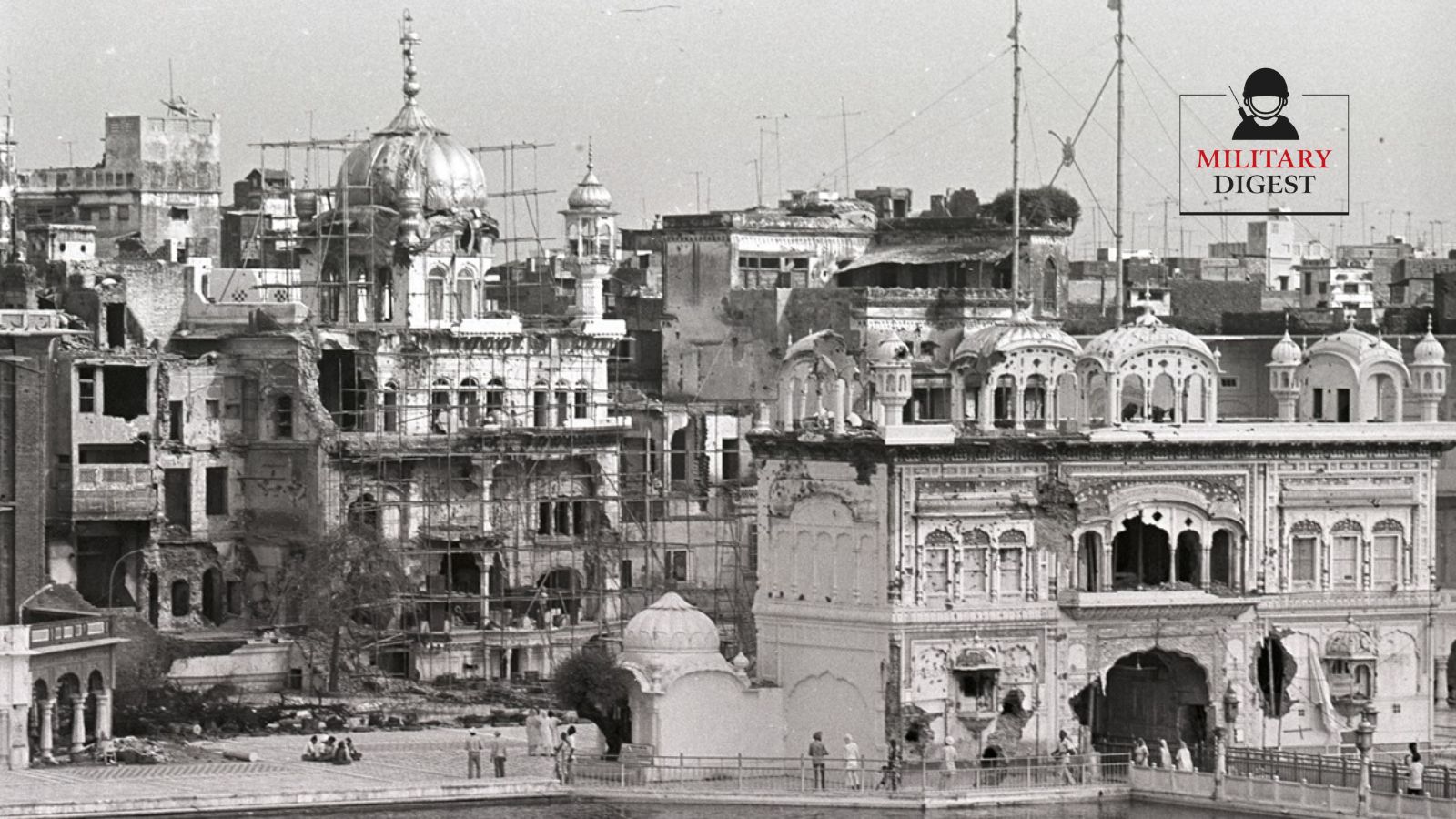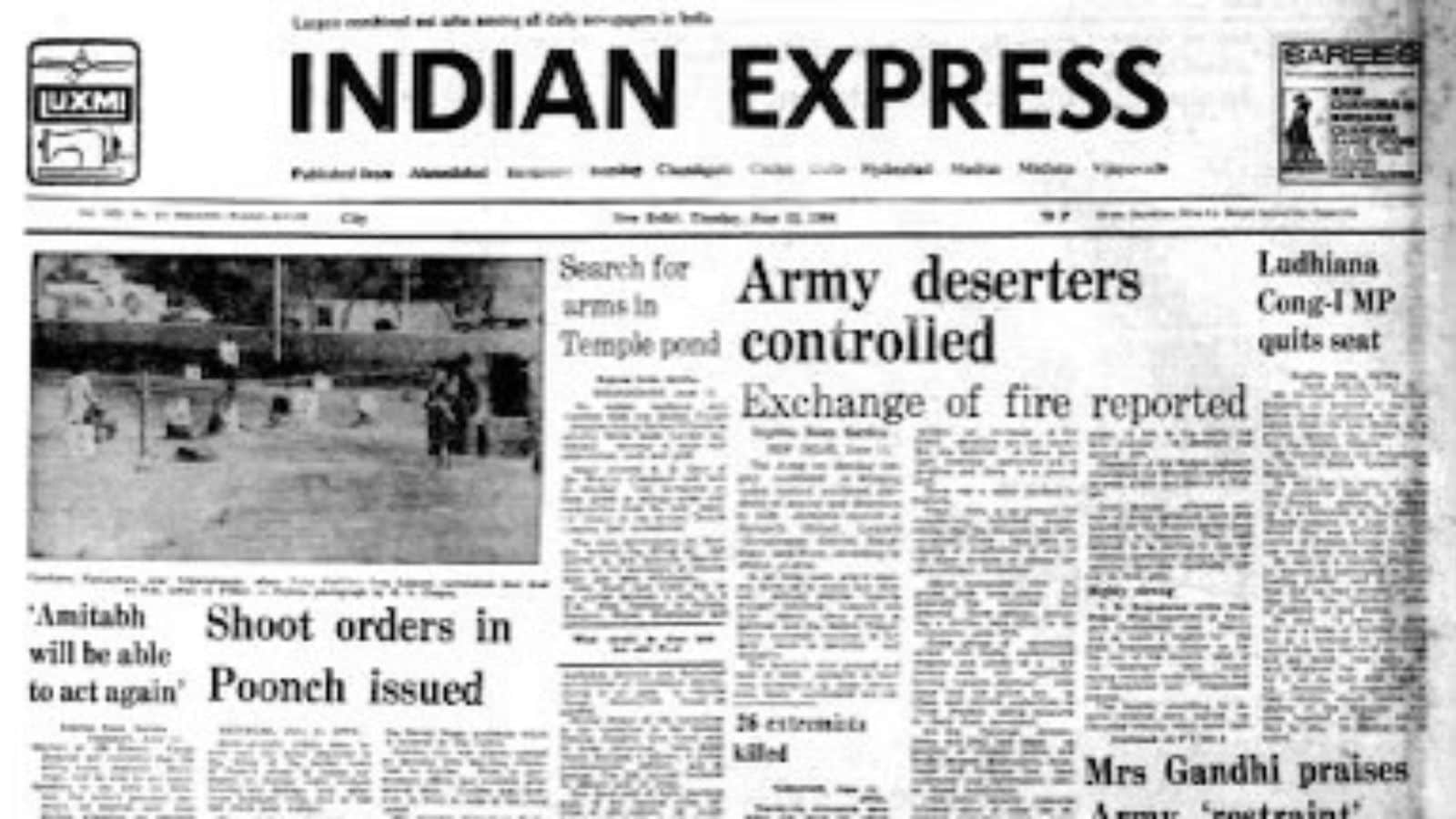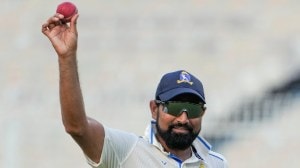Military Digest: Sikh soldiers’ desertions, disbandment of 9th Battalion after Operation Blue Star
A court of inquiry found that on June 4, 1984, a signature campaign was initiated in the battalion to enlist volunteers willing to go to Amritsar in case the need arose.
 Approximately 2,800 Sikh troops were found to be involved in incidents of desertion after Operation Bluestar. (Express Archives)
Approximately 2,800 Sikh troops were found to be involved in incidents of desertion after Operation Bluestar. (Express Archives)In the days following Operation Blue Star and the Army’s intervention in the Golden Temple in 1984, there was widespread unrest among Sikh troops in the Army across the country, leading to a large number of them deserting their units in a bid to march towards Amritsar.
In the Sikh Regimental Centre in Ramgarh, Bihar (now Jharkhand), the mutinous jawans looted arms and killed the Commandant of the centre, Brigadier S C Puri, and injured several other officers. Approximately 2,800 Sikh troops were found to be involved in incidents of desertion after Operation Bluestar.
 A headline of Indian Express on Army desertions after Op Blue Star
A headline of Indian Express on Army desertions after Op Blue Star
Some units involved were the Sikh Regimental Centre, 3 Sikh, 8 Sikh, 9 Sikh, 18 Sikh, 14 Punjab, 166 Mountain Regiment, 171 Field Regiment, and 196 Field Regiment. Out of all these regiments, only 9 Sikh, a much-decorated unit, suffered the worst fate and was eventually disbanded in April 1985.
Lt Col I S Sabherwal was the Commanding Officer (CO) of 9 Sikh in Lalgarh Jattan, near Sri Ganganagar in Rajasthan. In September 1982, he assumed command of the battalion commissioned in October 1963.
Following the desertions in 9 Sikh in the second week of June 1984, the Army chain of command blamed the CO and said he should have also anticipated the desertion/breach of discipline by his troops and in the light of false and exaggerated version given by “hostile media of Pakistan, BBC and Voice of America in the wake of Operation Blue Star” and he should have taken corrective measures which he had failed to do.
The general officer commanding the 24th Infantry Division ordered a court of inquiry. The inquiry found that on June 4, 1984, a signature campaign was initiated in the battalion to enlist volunteers willing to go to Amritsar in case the need arose.
On June 6, 1984, around 9.30 pm, Havildar Gurmail Singh of ‘C’ Company exclaimed after drinking, “Our Harminder Sahib has been looted, the Sikh community has been looted,” or words to that effect.
On June 7, 1984, a conference was held at the Gurdwara premises three times during the day to finalise the plan and determine the number of people going to Amritsar. The Motor Transport (MT) Platoon was warned to move at short notice, and all vehicles were topped up with fuel on June 7, 1984, by 9 pm. The inquiry also noted the playing of recorded tapes of Jarnail Singh Bhindrawale in the unit area.
Thus, the inquiry found that a number of activities had taken place in the battalion which indicated that desertions would occur. The CO was blamed for a lack of control and supervision.
Consequent to the mass desertions in the battalion, Lt Col Sabherwal was removed from command and attached to HQ 180 Infantry Brigade for further action. He was reduced to his substantive rank of Major and disciplinary proceedings were initiated against him. Eventually, plans to court martial him were dropped and he was awarded ‘Severe Displeasure’ as a punishment.
When his acting rank of Lt Col was not restored, Sabherwal moved the high court and successfully contended that if the person brought down in the rank for disciplinary proceedings is acquitted or is not brought to trial, he is to be granted back his acting rank and that acting rank will be deemed to be held by him continuously from the date he relinquished it.
He argued that desertions also occurred in other battalions of Sikh Regiments and in other regiments with Sikh troops, and none of the other COs were treated the way he had been treated. The action against other COs where desertion occurred only varied to the extent of posting them of such units where it was considered necessary.
The high court ordered that Major I S Sabherwal be restored to the acting rank of Lt Colonel from the date it was taken away, that is, November 18, 1984, and that he continues to hold the acting rank of Lt Colonel continuously with effect from the date he was promoted to this rank with all consequential benefits.
Later, Lt Col Sabherwal won further reprieve from the courts for consideration for promotion to the rank of Colonel after the ‘Severe Displeasure’ awarded to him was quashed. “The Army authorities should sit with open mind and not like enemies wielding guns against those who were once accused for certain reasons and exonerated and their honour was restored after that isolated act (that too was condoned), the authorities should not always adopt a policy of ‘once bad always bad’,” the court observed.
The former commanding officer was able to restore his military reputation, but the battalion did not have the same fortune. Lieutenant Colonel (later Colonel) Karam Singh Virk, who was leading the 20th Sikh at the time, was appointed as the new commanding officer in November 1984.
Col Virk was commissioned in 9 Sikh and fought with the battalion in the 1971 war in Jammu and Kashmir. He faced the tough task of reorganising the battalion, as deserters from his unit were held in different locations: Lalgarh Jattan, Suratgarh, and Bikaner. Gorkha troops manned the unit quarter guard and guarded the armoury. Col Virk made fruitful efforts to restore the battalion’s tattered command and control under tough circumstances.
Although they were denied weapons and participation in weapon competitions, troops of 9 Sikhs won the brigade hockey, basketball, boxing, and cross-country events in the sports competition after the desertions, much to the surprise of senior Army officers.
Eventually, his command lasted only a few months, and the 9 Sikh was disbanded in April 1984. It was one of the few Indian Army units to suffer this ignominy post-Independence. Colonel Virk went on to Command a third battalion, the 8 Sikh.







